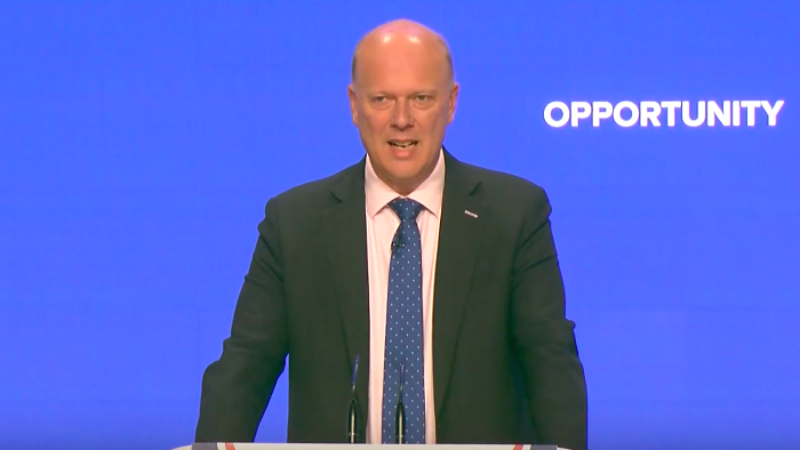
Our criminal justice system has rarely been out of the news over the last few years – for all the wrong reasons. Whether it’s the parlous state of our courts – problems with the translation contracts, a lack of duty solicitors, crippling legal aid reforms, the violence in our prisons or yet another private probation provider “requiring improvement” – under austerity, the justice system is falling apart at the seams.
Yesterday provided some light at the end of a very long tunnel. The government announced that former Justice Secretary Chris Grayling’s landmark reforms to probation, ‘Transforming Rehabilitation’, will be cancelled. His reforms involved selling off around 70% of the probation service to 21 newly created community rehabilitation companies (CRCs) to work with those committing low and medium risk offences. Payment by results (PbR) contracts were key to the model that was introduced in haste and to loud protestation from those in the sector, who understandably were keen to protect their world-class probation service. But Failing Grayling is first and foremost an ideologue, never one to be swayed by experts or those with decades of experience: the Ministry of Justice was one of the few departments that managed to apparently institute all the cuts George Osborne demanded of it.
Fast forward to March 2019, when the National Audit Office revealed that the whole fiasco had actually cost the British tax payer close to an additional £500 million. That figure obviously doesn’t include the cost to individual lives ruined by these reforms. The staff who were transferred from the public sector to private providers working with large caseloads and huge pressure. The people being supervised who received an inconsistent and substandard service in most of the country. The victims and witnesses of crime, not able to have confidence in a system clearly not fit for purpose.
Coming out of prison is hard. Trying to find your way in a society that has often stigmatised you, judging you forever on your worst moment, rather than seeing potential in your best. Trying to find somewhere to live, something to do, relationships that restore and enable you to flourish rather than coerce and abuse you. Good probation work is relationship- and trust-based; it takes time. It’s the antithesis of payment by results and the morally bankrupt idea of making a profit out of someone else’s pain. It’s clearly good news that Gauke will be tearing up the contracts – even the Tory chair of the Justice Select Committee welcomes the news unreservedly, calling it “well overdue”.
It was already Labour policy to bring probation back in-house, but what else does a socialist approach to probation look like? What should our policy in this area include, now that the basic foundation of it being a public sector provision has been realised?
Firstly, we need to value the probation profession, the workers who deliver it. Professionals used to receive social work training and have much more manageable caseloads. The probation officers I worked alongside in HMP Holloway had been there 20 years or more: far from being jaded, they were incredibly skilled experts, respected throughout the prison.
Our policy then needs to understand the primacy of consistent relationships for a cohort who have often had lives marked by trauma, broken attachments, poor relationships in childhood and abusive relationships in adulthood. We need to honour the contribution of the voluntary and community sector. The VCS was one of the biggest losers under Transforming Rehabilitation but often led the way in innovation and knowing how to come alongside and support people to reduce reoffending. I worked for an employability charity with women post-release that had a reoffending rate of less than 3%, and I worked as a mentor for another charity with young women post-prison and our reoffending rate was 18% – both far lower than national averages. Both used careful co-designed approaches that placed an emphasis on reparative relationships.
We must start co-designing all criminal justice policy and services with those most affected by it. The experts by experience: not just victims, but workers and probationees as well. We need to fundamentally understand the drivers of crime and re-offending. We won’t see probation do the work it needs to whilst public health budgets are slashed and housing crisis continues. Whilst poverty and inequality scar our country, our justice system can never be truly just. Gauke’s announcement is a good start but that is all it is, a start. We have so much further to go.




More from LabourList
‘Labour is being badly misled on housing’
Reeves bets on patience over populism
‘Energy efficiency changes must work for older private renters’